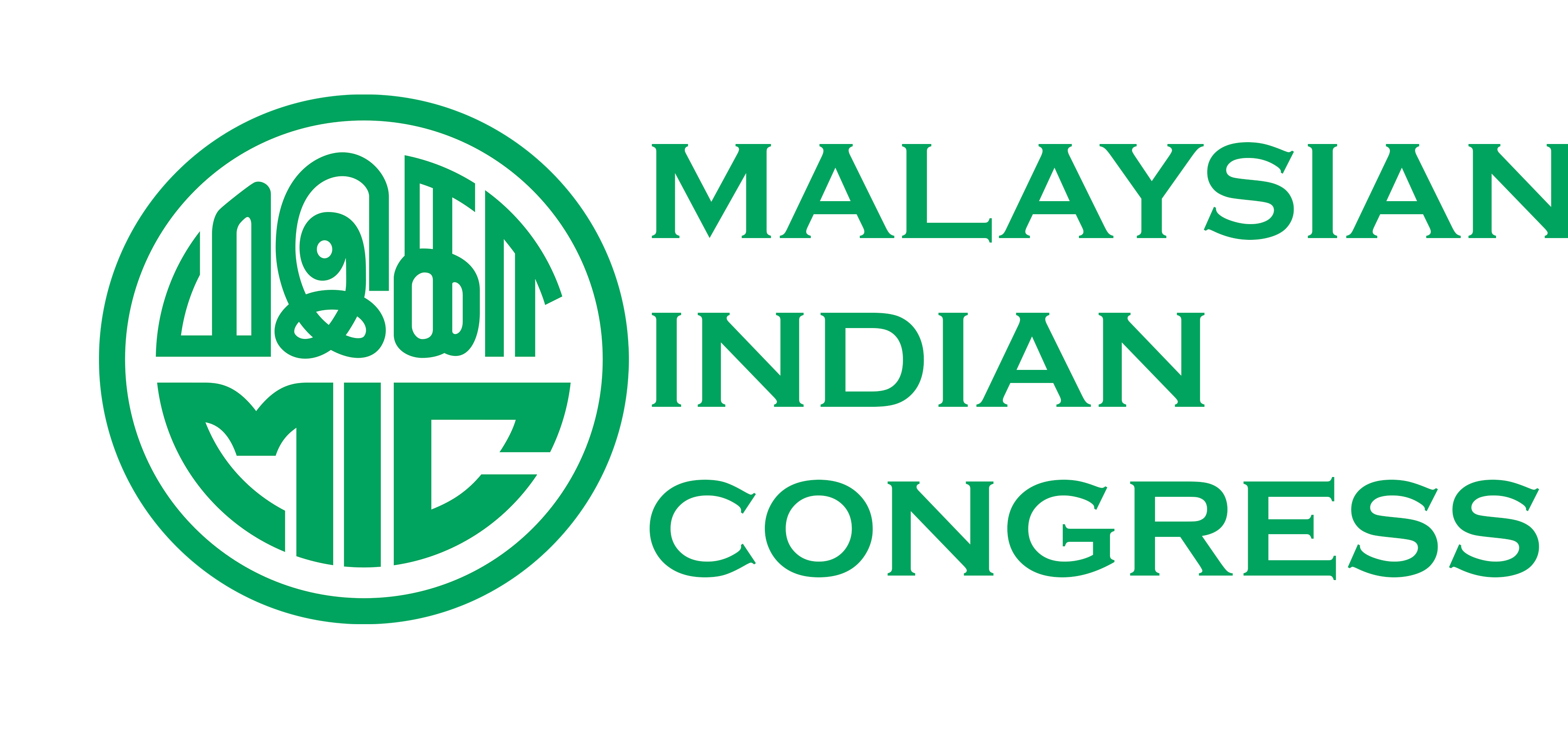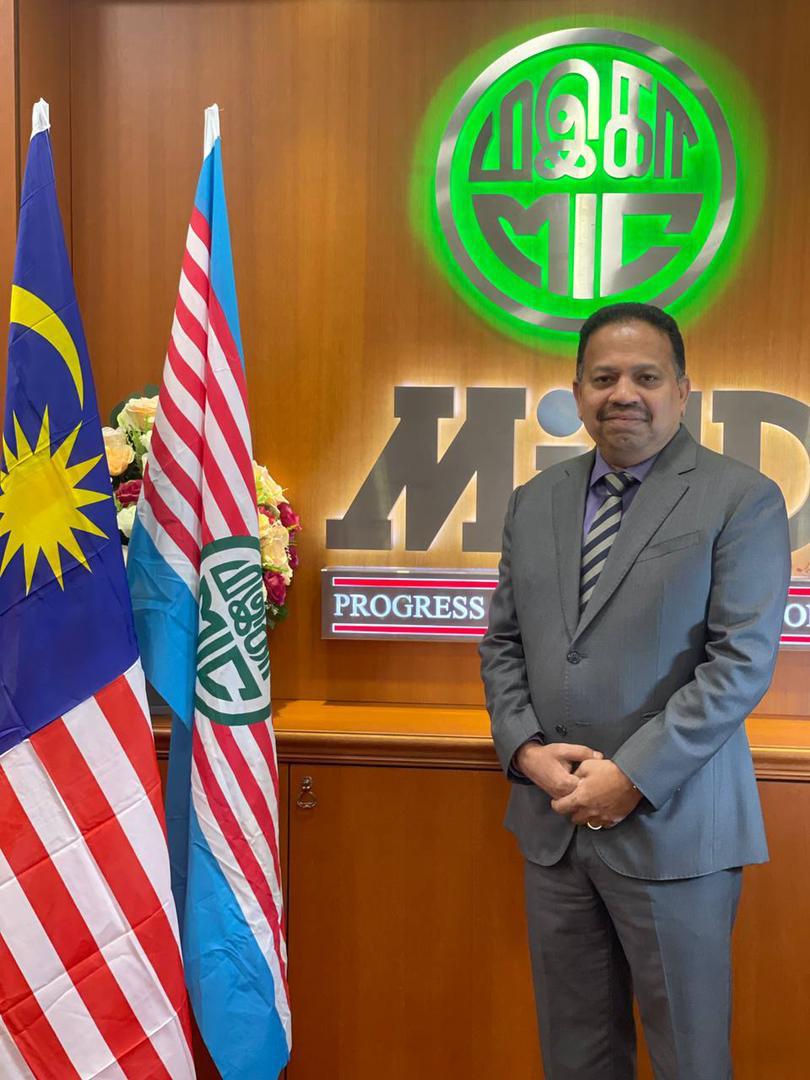Breaking: What You Need To Know About The Malaysian Indian Congress
Is the Malaysian Indian Congress (MIC) still a relevant force in Malaysian politics, or has its influence waned with the passage of time and the shifting sands of the nation's demographics? The MIC, once a cornerstone of the ruling coalition and a dominant voice for the Indian community, now navigates a complex political landscape, grappling with internal challenges and external pressures that threaten its long-held position.
The Malaysian Indian Congress (MIC), founded in 1946, has a storied history deeply intertwined with the evolution of Malaysia. Originally established to represent the interests of the Indian community, primarily those involved in the rubber and plantation sectors, the MIC played a crucial role in the fight for independence and the subsequent nation-building process. Its leaders, such as Tun V.T. Sambanthan and later, Datuk Seri S. Samy Vellu, became prominent figures in Malaysian politics, holding ministerial portfolios and shaping government policies. The party's participation in the ruling Barisan Nasional (BN) coalition for decades solidified its position and provided a platform to advocate for the Indian community's rights and advancement. The MIC's ability to secure economic opportunities, educational access, and cultural recognition for Indian Malaysians became a defining feature of its leadership, solidifying its electoral base within the community.
However, the landscape has drastically changed. The rise of new political formations, the increasing diversity of the Indian community, and the emergence of fresh perspectives on political representation have all contributed to a period of re-evaluation for the MIC. Questions about its future, its relevance, and its ability to effectively champion the community's interests are now routinely asked by political analysts, academics and within the community itself. The party must now adapt to a more complex and fragmented political environment, where its traditional strategies may not be as effective as they once were. A core issue now, is how the MIC can reconcile its legacy with the evolving needs and aspirations of the modern Indian Malaysian.
The partys journey through the years reveals a narrative of adaptation and challenges. The MICs early years were marked by its struggles to unite the diverse Indian community, which comprised of various linguistic groups, religious affiliations, and socio-economic backgrounds. The leadership sought to create a cohesive political entity that could speak with a unified voice. The party was instrumental in advocating for the rights of Indian laborers in the plantation sector, addressing issues such as fair wages, working conditions, and access to basic amenities. These efforts not only improved the lives of many Indian Malaysians but also built a strong foundation for the partys support base. This foundation helped secure its place in the BN coalition for generations.
The MICs relationship with other parties in the BN coalition, primarily UMNO, has been a defining aspect of its political existence. While the alliance provided a degree of political stability and access to government resources, it also raised questions about the MICs autonomy and its ability to act independently. Critics often argued that the MIC was constrained by the coalition's priorities, limiting its capacity to fully address the specific concerns of the Indian community. This dynamic, however, was also seen as a crucial element of power-sharing, giving the Indian community a seat at the table. The party had to navigate these challenges in a way that protected the Indian community's interests while working within the boundaries of the coalition framework.
In the wake of the 2018 general elections, which saw the fall of the BN coalition, the MIC found itself in uncharted territory. The party's electoral performance declined, and its influence in the new political order was significantly diminished. This outcome triggered internal introspection, with questions raised about leadership, strategy, and the party's long-term goals. The MIC found itself seeking to redefine its position, forging new alliances and re-evaluating its approach to political discourse. The challenges now involved adapting to a new environment in which its traditional power base had shifted. These challenges are amplified by a younger generation seeking different avenues of political expression and representation.
The economic and social landscape of the Indian community in Malaysia has undergone a profound transformation. While some segments of the community have achieved significant progress, others continue to face economic hardship and social marginalization. The MIC's role in addressing these disparities is a critical point of focus. The party is expected to formulate and implement policies that promote economic empowerment, improve educational opportunities, and reduce poverty within the Indian community. These policies must be carefully designed to consider the diverse needs of a community that ranges from affluent professionals to marginalized laborers. The party is also expected to represent Indian Malaysians at all levels, from the rural poor to the urban elite.
Furthermore, the evolving nature of political discourse in Malaysia presents both opportunities and challenges for the MIC. The increasing focus on issues such as social justice, human rights, and ethnic relations requires a nuanced approach. The party is expected to advocate for the rights of the Indian community while also contributing to a more inclusive and equitable society. The party is expected to foster healthy relationships between all communities in a nation that embraces diversity and co-operation. This approach is crucial in order to avoid further divisions and encourage the spirit of unity.
The issue of leadership succession and internal unity is also of paramount importance for the MICs future. The party has faced periods of internal strife and leadership struggles. The ability to overcome such challenges and provide a stable leadership is vital for regaining public trust and effectively advocating for the community's interests. A cohesive and forward-thinking leadership team is essential to navigating the complex political landscape. The party has to ensure that a smooth transition is assured while preserving the legacy of the party.
A renewed focus on youth engagement and empowerment is vital for the MICs long-term sustainability. The younger generation of Indian Malaysians have different priorities and perspectives. The party is actively seeking to engage them by tailoring its strategies to cater to their needs and aspirations. By including young leaders in decision-making processes and by promoting a new approach to politics, the MIC could strengthen its appeal to a new generation. The challenge is to create space for young people who are ready to assume leadership roles and contribute to the growth and vitality of the MIC.
In the current political climate, the MIC finds itself at a critical juncture. The partys ability to adapt to the evolving landscape, address the diverse needs of the Indian community, and engage with a new generation of voters will determine its long-term success. Its success hinges on its ability to provide effective leadership, championing the rights and aspirations of the Indian community while contributing to a more inclusive and equitable Malaysia. Its next chapter will undoubtedly be defined by its ability to navigate the challenges ahead and reinvent itself for the future.
The MIC faces significant challenges in maintaining its relevance. Its past success and its historical significance are now being re-evaluated by a new generation. The partys ability to adapt and thrive will depend on its ability to connect with the diverse experiences and the evolving perspectives of the Indian community in Malaysia. The MICs future is closely linked to its ability to address these challenges and make a strong case for its continuing importance in Malaysian politics.
The core principles of the MIC, as established during its inception, have revolved around advocating for the social, economic, and political advancement of the Indian community in Malaysia. This commitment has shaped the party's actions and its relationship with both the government and the broader community. The MIC has consistently striven to protect the rights and interests of Indian Malaysians, particularly those who were marginalized and underserved. This steadfast dedication has been a central factor in gaining support and solidifying its place in the political arena.
Throughout its history, the MIC has played a role in promoting and safeguarding the cultural heritage of the Indian community. It has actively worked to maintain and preserve the traditions, languages, and religious practices that are integral to the Indian identity. The partys commitment to cultural preservation has resonated with many Indian Malaysians who value their heritage and seek to pass it on to the younger generations. This commitment is essential to retaining the community's unique identity. The MIC also takes steps to improve language programs, cultural festivals, and community centers.
Education has always been a crucial area of focus for the MIC. The party has actively advocated for greater access to quality education for Indian Malaysians and for policies that will improve educational opportunities for everyone. The party has consistently worked to achieve this goal by increasing the number of Indian students in tertiary institutions and by lobbying for the allocation of resources to improve schools and educational facilities. A strong emphasis on education is a prerequisite for the economic advancement and social mobility of the Indian community.
The MIC has a well-established record of addressing the economic issues that have affected the Indian community. Its work involves providing business assistance, promoting entrepreneurship, and advocating for fairer employment practices. The partys dedication to economic empowerment has helped to uplift many Indian Malaysians. This is crucial for tackling economic imbalances within the community. The partys initiatives include funding for small business owners and advocating for programs to reduce poverty. The goal is to build a thriving community.
The MICs stance on national unity and inter-ethnic relations has been a cornerstone of its political strategy. The party has always emphasized the importance of fostering harmonious relationships between different ethnic groups in Malaysia. The MIC has actively participated in interfaith dialogue and has championed policies that aim to promote tolerance and mutual understanding. Its dedication to national unity has helped build a more inclusive society.
The MIC's history is not without its share of controversies. The party has experienced challenges related to leadership, internal conflicts, and allegations of corruption. However, the MIC has always sought to address these challenges through internal reforms and efforts to improve governance and transparency. Recognizing and resolving such issues is critical for regaining public confidence and maintaining the trust of the electorate.
Over the years, the MIC has actively sought to evolve its strategic approach. It has adapted to changing political dynamics by forging new alliances and re-evaluating its strategies. The partys strategic flexibility will be crucial for navigating the changing political landscape. This includes fostering relationships with a wider range of political parties and actively engaging in public discourse and dialogue.
In the coming years, the MIC must focus on certain key priorities in order to ensure its continued relevance. The party will need to further engage with the younger generation and address their unique concerns. Another priority is to boost the economic empowerment of the Indian community and to ensure that there are opportunities for employment and business development. The MIC must be dedicated to promoting social justice and equality. The MIC should always prioritize the welfare and advancement of the Indian community and strive to play a meaningful role in Malaysian society.
| Category | Details |
|---|---|
| Name | Malaysian Indian Congress (MIC) |
| Founded | August 1946 |
| Founders | John Thivy, Budh Singh, and others |
| Ideology | Social Justice, Community Advancement, National Unity |
| Key Figures (Past & Present) | Tun V.T. Sambanthan, Tun S. Samy Vellu, Tan Sri M. Mahalingam, Tan Sri S. Subramaniam, Datuk Seri M. Saravanan |
| Political Affiliation | Historically part of Barisan Nasional (BN) coalition; currently independent |
| Current Status | A political party representing the Indian Malaysian community; has faced electoral challenges and is working to redefine its role. |
| Key Objectives | Advocating for social justice, economic empowerment, and cultural preservation for the Indian Malaysian community; promoting national unity and inter-ethnic harmony. |
| Headquarters | Kuala Lumpur, Malaysia |
| Website | mic.org.my |


